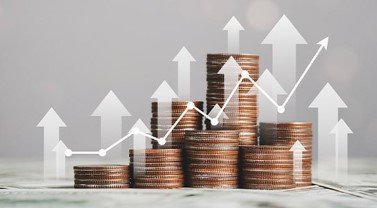Performing a regular financial check-up is a proactive way of assessing your financial health and making informed decisions about your financial future. By evaluating your current financial situation, you can identify areas of improvement, set realistic goals, and make necessary adjustments to achieve financial stability. In this post, we will explore the various benefits of conducting a financial check-up.
-
Understanding Your Financial Standing:
A financial check-up provides a comprehensive overview of your current financial standing. It allows you to assess your income, expenses, debt, savings, investments, and overall net worth. By gaining a clear understanding of your financial situation, you can make informed decisions and prioritize areas that require attention.
-
Identifying Financial Strengths and Weaknesses:
Analyzing your financial check-up report enables you to identify both your strengths and weaknesses. You can identify areas of financial strength, such as a healthy emergency fund, well-managed debt, or consistent savings. Additionally, you can pinpoint areas that need improvement, like excessive spending, high-interest debt, or inadequate savings. Recognizing these strengths and weaknesses allows you to develop a plan to enhance your financial well-being.
-
Setting Realistic Financial Goals:
A financial check-up serves as a foundation for setting realistic and achievable financial goals. By understanding your current financial situation, you can establish short-term and long-term objectives, such as creating a retirement plan, saving for a down payment on a house, paying off high-interest debt, or starting an investment portfolio. Setting goals that align with your financial check-up results can provide a clear path to success and enhance your likelihood of achieving them.
-
Evaluating Spending Habits:
A financial check-up helps evaluate your spending habits and identify areas where adjustments can be made. By tracking your expenses, you can identify unnecessary or excessive spending. This information empowers you to create a budget, cut back on non-essential expenses, and redirect those funds towards savings or debt reduction. Improved spending habits can lead to long-term financial stability and increased savings.
-
Addressing Debt Management:
Debt can be a significant challenge to financial well-being. Conducting a financial check-up allows you to assess your current debt situation, including the amount owed, interest rates, and repayment terms. By understanding your debt load, you can develop a plan to manage and reduce this burden effectively. Options may include refinancing to lower interest rates, consolidating high-interest debt, or creating a repayment strategy to eliminate debt systematically.
-
Enhancing Financial Security and Peace of Mind:
Regularly conducting a financial check-up provides a sense of security and peace of mind. Knowing that you have a comprehensive understanding of your financial situation, clear goals, and actionable plans in place can alleviate stress and anxiety. Financial security allows you to weather unexpected expenses, plan for the future, and make informed financial decisions confidently.
Conclusion:
A financial check-up offers multiple benefits, including a clear understanding of your financial situation, the ability to identify strengths and weaknesses, setting realistic goals, evaluating spending habits, addressing debt management, and enhancing financial security. By regularly reassessing your financial health, you can stay on track, make necessary adjustments, and work towards a stable and prosperous financial future.











